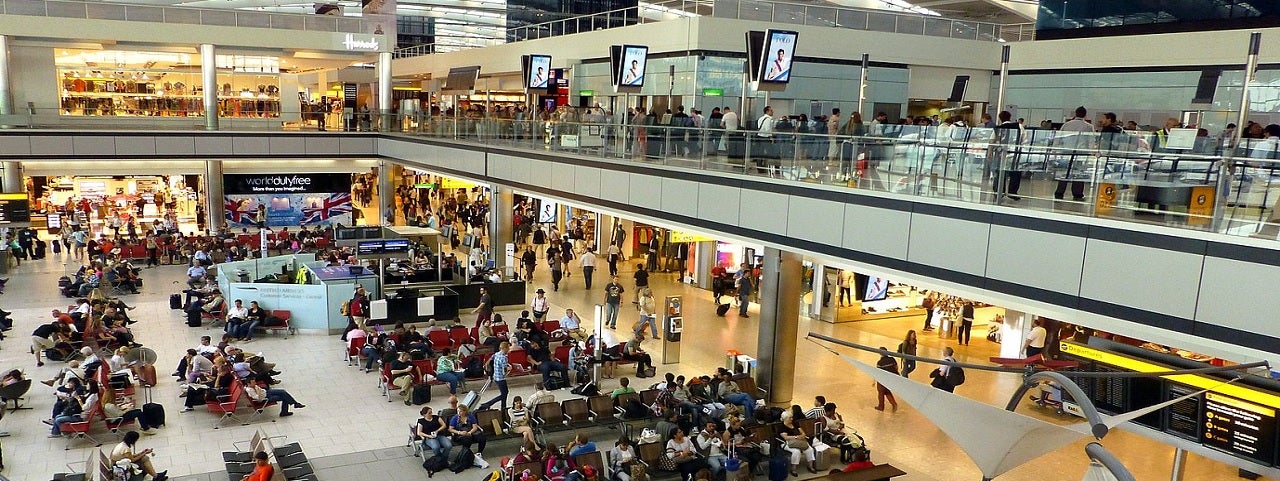
UK’s Heathrow Airport has introduced a one-hour rapid coronavirus test for travellers flying to Italy and Hong Kong as part of its plans to open up international travel.
The quick tests are being introduced to allow passengers to enter countries where a negative test result of Covid-19 is required in order to skip quarantine.

Discover B2B Marketing That Performs
Combine business intelligence and editorial excellence to reach engaged professionals across 36 leading media platforms.
Outbound travellers have to book a rapid test in advance, which will cost $103.
Airport services firms Collinson and Swissport have opened up rapid testing facilities at the airport.
The facilities will open for four weeks initially and may later be extended for a further period based on passenger demand.
Meanwhile, in a separate development, Malaysia Airports has announced its plans to install the latest thermal scanners and additional sneeze guards at 19 more airports across the country in a bid to keep airport guests safe from Covid-19.

US Tariffs are shifting - will you react or anticipate?
Don’t let policy changes catch you off guard. Stay proactive with real-time data and expert analysis.
By GlobalDataA total of 23 new thermal scanners and 600 units of sneeze guards will be deployed at all 19 airports.
Out of the 19 airports, 12 have completed the installations.
Malaysia Airports CEO Dato’ Mohd Shukrie Mohd Salleh said: “Since the onset of the pandemic, we have not stopped exploring means and ways to help mitigate the risks of Covid-19. We consider this as part and parcel of our obligation to help keep our country safe.
“We have been working very closely with the Ministry of Transport (MOT), Ministry of Health (MOH) and other related agencies, mainly through the joint committee at KL International Airport – the KUL COVID Committee. We pilot the latest technology solutions at KUL first before rolling them out at other airports because KUL serves the majority of our passengers.”





